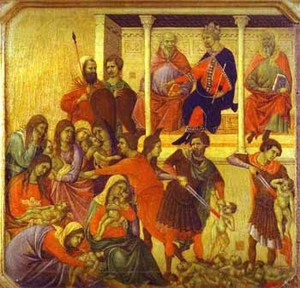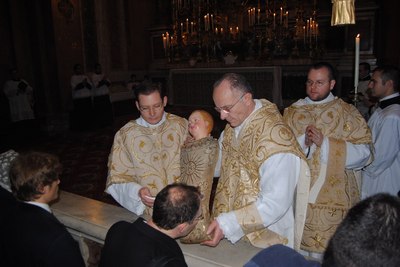Advent & Christmastide: December 2010 Archives
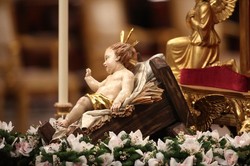
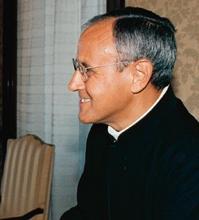
Father Julián Carrón, the head of the Fraternity of Communion and Liberation, gave this message for Christmas. He writes from Milan, Italy.
In the mystery of the Incarnation, man and history
"That Christianity gives joy and breadth is also a thread that runs through my whole life. Ultimately someone who is always only in opposition could probably not endure life at all" (Light of the World, part 1). These words of Benedict XVI challenge us to ask ourselves what it means to be Christians today. Continuing to believe simply out of devotion, habit, or tradition, withdrawing into one's shell, does not meet the challenge. Similarly, reacting strongly and going on the offensive in order to recover lost territory is insufficient; the Pope even says that it would be unendurable. Neither path -withdrawing from the world or opposing it- are capable of arousing interest in Christianity, because neither respects what will always be the canon of the Christian announcement: the Gospel. Jesus entered the world with a capacity to attract that fascinated the people of His time. As Péguy said, "He did not waste His years groaning and demanding explanations of the wickedness of the times. He cut through ... making Christianity." Christ introduced into history a human presence so fascinating that anyone who ran into it had to take it into consideration, had to reject it or accept it. No one was left indifferent.
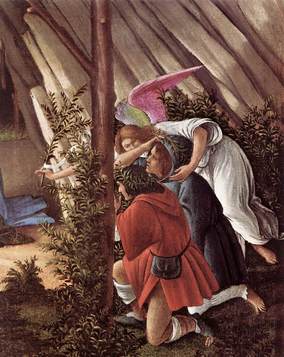 O Emmanuel, Rex et legifer noster, exspectatio
Gentium, et Salvator earum: veni ad salvandum nos, Domine, Deus noster.
O Emmanuel, Rex et legifer noster, exspectatio
Gentium, et Salvator earum: veni ad salvandum nos, Domine, Deus noster.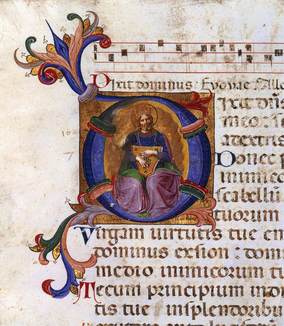 O Rex Gentium, et desideratus earum, lapisque
angularis, qui facis utraque unum: veni, et salva hominem, quem de limo
formasti.
O Rex Gentium, et desideratus earum, lapisque
angularis, qui facis utraque unum: veni, et salva hominem, quem de limo
formasti.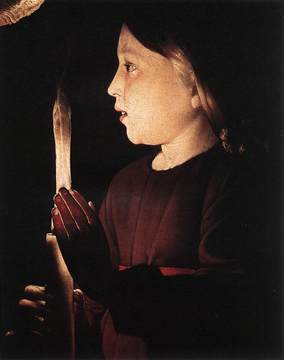 O Oriens, splendor lucis aeternae, et sol justitiae: veni, et illumina sedentes in tenebris, et umbra mortis.
O Oriens, splendor lucis aeternae, et sol justitiae: veni, et illumina sedentes in tenebris, et umbra mortis.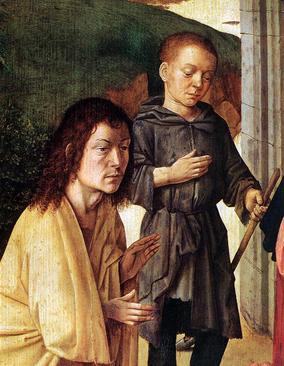 O Clavis David, et sceptrum domus Israel; qui aperis,
et nemo claudit; claudis, et nemo aperit: veni, et educ vinctum de domo
carceris, sedentem in tenebris, et umbra mortis.
O Clavis David, et sceptrum domus Israel; qui aperis,
et nemo claudit; claudis, et nemo aperit: veni, et educ vinctum de domo
carceris, sedentem in tenebris, et umbra mortis.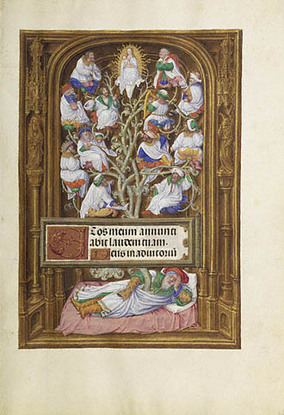 O Radix Jesse, qui stas in signum populorum, super
quem continebunt reges os suum, quem Gentes deprecabuntur: veni ad liberandum
nos, jam noli tardare.
O Radix Jesse, qui stas in signum populorum, super
quem continebunt reges os suum, quem Gentes deprecabuntur: veni ad liberandum
nos, jam noli tardare.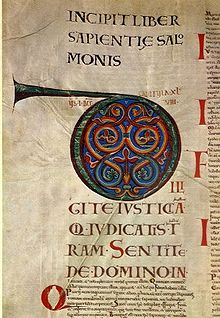
O Sapinetia quae ex ore Altissimi prodiisti, attingens a fine usque ad finem, fortiter sauviterque disponens omnia: veni ad docendum nos viam prudentiae.
O Wisdom, you came forth from the mouth of the Most High, and reached from end to end, and disposed of all things sweetly and mightly: come and teach us the way of prudence!
You can hear the Great O Antiphons here...
I absolutely love this part of Advent as our liturgical sensibility starts to be centrally focussed on the birth of the Savior, Emmanuel. At Vespers the antiphon for the Magnificat hymn in the Divine Office shows us the solemnity of the next days. The first antiphon is noted above in Latin and in English. Each of the antiphons appeals to the Old Testament types given to tell of the coming of the Messiah. The OT typology indicates the new dispensation of grace. Today, we ask for a new sense of prudence rooted in Christ.
And NOW we are able to sing the famous Advent hymn O Come, O Come Emmanuel. It is only tonight that singing the hymn makes any real sense as opposed to singing it when Advent begins, a common mistake.
I was reading a bit on Advent in Father Pius Parsch's The Church's Year of Grace:
"Come, teach us the way of prudence! What an all-embracing petition! Make us perfect Christians, Christians who are wholly penetrated --mind, will, and emotions-- with the leaven of Christianity. Make us true Christian personalities who combine strength with gentleness. Make us strong in battle against hell, the world and self; make us glow with the love of God and neighbor! Enable us to show virile courage, and heroism unto martyrdom. Enable us to show the virgin gentleness and sweetness of a bride. In this sense we pray, "Thy kingdom come!" All this is part of our yearning plea, Come! teach us the way of prudence.
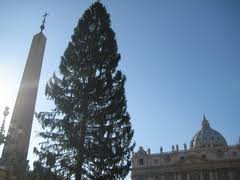 My mother and the neighbors have had the Christmas tree up for a week. We've got three small trees. In fact, my neighborhood is alighted with Christmas lights. New York's Rockefeller Center Christmas tree was lit last week with several stars entertaining us with "Christmas songs." The Vatican put its Christmas tree, a gift from the good people of Bolzano, Italy (a German speaking of Italy where Pope Benedict has vacationed in the past) A little too early for my tastes. SO, it MUST be Christmas time!!! What does it all mean? But what does the Christmas tree stand for? How ought the Christmas tree be interpreted by the Catholic?
My mother and the neighbors have had the Christmas tree up for a week. We've got three small trees. In fact, my neighborhood is alighted with Christmas lights. New York's Rockefeller Center Christmas tree was lit last week with several stars entertaining us with "Christmas songs." The Vatican put its Christmas tree, a gift from the good people of Bolzano, Italy (a German speaking of Italy where Pope Benedict has vacationed in the past) A little too early for my tastes. SO, it MUST be Christmas time!!! What does it all mean? But what does the Christmas tree stand for? How ought the Christmas tree be interpreted by the Catholic?